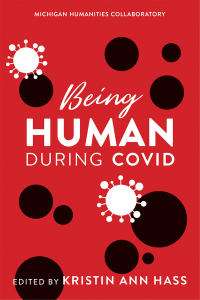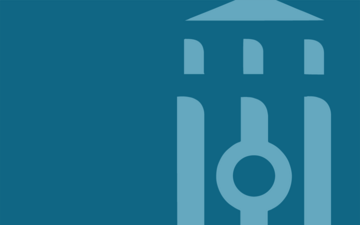UM Press Annotates COVID 3.0: Being Human during Covid

Welcome to the third week of exploring COVID 3.0 with UM Press Annotates. Readers have been sharing annotations in the digital margins of Jing Sun’s Red Chamber, Dream World: Actors, Audience, and Agendas in Chinese Foreign Policy and Beyond (University of Michigan Press, 2021) and Scott L. Greer, Elizabeth J. King, Andre Peralta, and Elize Massard da Fonseca’s edited collection, Coronavirus Politics (University of Michigan Press, 2021).
We turn this week to Kristin Ann Hass’ edited collection, Being Human during COVID (University of Michigan Press, 2021). Hass’ collection helped us to document, in real time, the first year of the COVID-19 crisis.
UM Press Annotates invites readers to join us in socially annotating Michelle McClellan and Aprille McKay’s chapter, “Not Even Past: Archiving 2020 in Real Time.” McClellan and McKay’s chapter describes how archivists at the University of Michigan’s Bentley Historical Library met the challenge of “collecting the present” at a critical moment.
“Not Even Past” invites readers to reflect on how archivists shape our collective memory. As McClellan and McKay share some of the rich multimedia and multi-dimensional materials archived at the Bentley, annotators might also reflect on how they have archived their own COVID experiences.
Please join us in annotating McClellan and McKay’s “Not Even Past” from Being Human during Covid this week, from February 6 th through February 12 th .
After annotating, inspired readers are encouraged to donate materials related to the COVID-19 pandemic at the University of Michigan through the Bentley Historical Library website . Readers with Michigan-related, non-university materials can contact Michelle McClellan for more information .
How to Participate
The University of Michigan Press looks forward to engaging with readers through UM Press Annotates. To help make the conversation productive for all, we ask annotators to follow these community guidelines:
- Seek to understand differing perspectives. Questions can inspire meaningful conversation and help us develop shared understandings, even where we may disagree.
- We welcome scholarly disagreements, but ask all annotators to engage in respectful communication practices.
- Help make the conversation searchable across social media with the hashtags #UMPAnnotates and #COVIDYear3.
To add annotations and respond to others, sign up for a free Hypothesis account . Once you have an account, there’s no need to install a browser extension; Hypothesis is embedded in our Fulcrum platform. Sign in, select some text, and click the annotate button to join the conversation: happy annotating!



